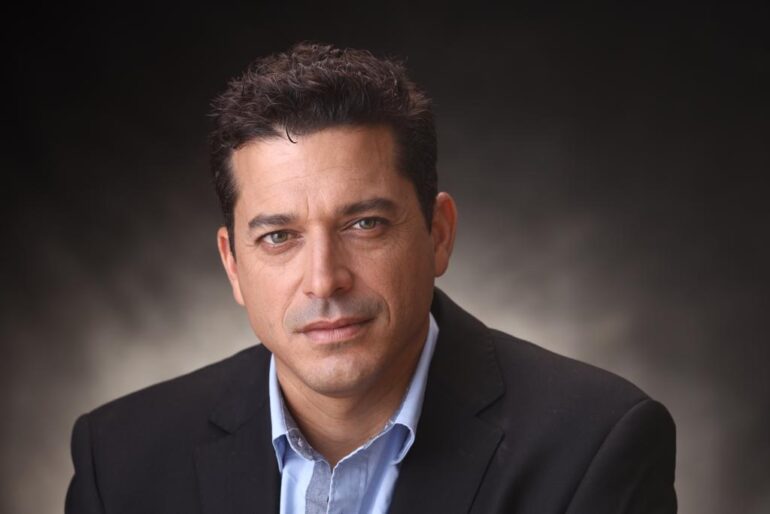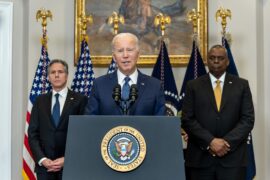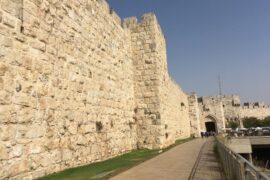Diaspora Affairs & Social Equality Minister Amiḥai Chikli (Likud) alleged earlier this week that US President Joe Biden’s public criticisms of Israel’s judicial reform legislation had been coordinated with former Prime Minister Ehud Barak and current Opposition Leader Yair Lapid (Yesh Atid).
“Every time they [judicial reform opponents] want to fan the flames, all of a sudden there’s a comment from the direction of the [United States] president,” Chikli said in an interview with the Kol Barama radio station on Tuesday.
“I think these comments are prompted and timed by Lapid and Barak and their people who are friends with these people [in the White House],” he added.
“There is a certain amount of coordination between Biden’s people and Lapid and Ehud Barak. There is certain amount of synchronization.”
In an interview with CNN on Sunday, Biden claimed that Binyamin Netanyahu’s government has some of “the most extreme members of cabinets” he had ever seen.
The question we should be asking ourselves is not why Chilki made the claims he’s made or why he’s dared to publicly call out Biden, but rather why Washington should even care whether or not Israel empowers its electorate over a seemingly all-powerful pro-West judicial system.
The answer might be that as Israel’s socio-cultural trajectory reveals the nation’s westernized ruling class to be rapidly shrinking in favor of “second Israel” (Mizraḥi, Ḥaredi, and national-religious Jews that have all felt marginalized by the more westernized “first Israel” since the state’s establishment), it’s become clear that the United States can no longer take it’s control over Israeli policies for granted.
This has already been made evident by Jerusalem’s refusal to get dragged into Uncle Sam’s proxy war against Russia via Ukraine. Maintaining Israel’s Supreme Court as the Jewish state’s most powerful institution could be Washington’s strategy for retaining control over Jerusalem despite the rise of second Israel.
Another question worth asking is the extent to which the Americans have actually been involved in orchestrating the anti-government demonstrations that began in January. While Israeli protestors certainly have legitimate concerns regarding some of the details of the reforms that appear to centralize significant power in the government’s hands, the regular mass protests appear to be straight out of a CIA playbook.
It’s also important to note an important distinction between the positions of many of the Israeli protestors and that of the US administration. While most Israelis overwhelmingly support some form of judicial reform so long as it appears to bring balance between the state’s branches of government, the Americans appear to oppose any weakening of Israel’s Supreme Court.
American fears for Israel’s future were further made public on Twitter by Ehud Barak.
In April, Barak tweetet that “In conversations between Israelis and Western diplomatic officials there are deep concerns raised of the possibility that if the coup in Israel succeeds, a messianic dictatorship will be established in the heart of the Middle East, which has nuclear weapons, and fanatically wishes for a confrontation with Islam centered on the Temple Mount.”
By coup, Barak meant the democratic empowerment of “second Israel” through their elected representatives – a prospect that causes concern for those who prefer to see Israel as an outpost of US power in the Semitic region (or a “villa in the jungle” as Barak has famously put it in the past).
While the entire protest movement reads like something out of a CIA playbook, there’s one thing that makes the Israeli theater different from others around the world. Unlike other countries where this has played out in the past, here in Israel the American-backed westernized ruling class is called “the left” while second Israel is called “the right” (for a convergence of reasons to complicated to unpack here).
This adds an ironic extra layer of confusion to the situation in Israel.
While it’s true is that both sides of the judicial reform fight genuinely see themselves as fighting for democracy and punching up against authoritarian rule, one side has slightly more electoral power while the other enjoys the backing of not only the media, the top brass of the security forces and the local bourgeoisie, but also the US empire itself.





